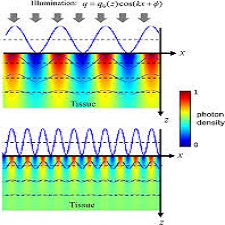توضیحات
ABSTRACT
Most prior studies assume a positive relation between debt and earnings management, consistent with the financial distress theory. However, the empirical evidence for financial distress theory is mixed. Another stream of studies argues that lenders of short-term debt play a monitoring role over management, especially when the firm’s creditworthiness is not in doubt. To explore the implications of these arguments on managers’ earnings management incentives, we examine a sample of US firms over the period 2003–2006 and find that short-term debt is positively associated with accruals-based earnings management easured by discretionary accruals), consistent with the financial distress theory. We also find that this relation is significantly weaker for firms that are of higher creditworthiness (i.e. investment grade firms), consistent with monitoring benefits outweighing financial distress reasons for managing earnings.
INTRODUCTION
Prior research on debt and earnings management generally assumes a detrimental effect for debt (see for example, Klein, 2002; Gupta et al., 2008). The underlying theme is to what extent debt causes insiders to manipulate accruals when the firm’s creditworthiness is in doubt. Examples include the use of accruals to avoid breaching covenants in debt contracts (DeFond and Jiambalvo, 1994) and to avoid lender enforcement (Gupta et al., 2008). We term these explanations financial distress theory. However, theory also suggests that debt may have a beneficial effect for financial reporting quality. Myers (1977), for example, suggests that debt’s beneficial effects are strongest when debt maturity is short, because the firm is required to approach lenders more often to obtain new loans, which disciplines insiders. Myer’s (1977) contention suggests that short-term debt may have a beneficial effect for earnings management, at least when creditworthiness of the firm is not in doubt. This is particularly relevant in practice, when reported earnings are generally regarded as one important factor in debt holders’ evaluation of the firm’s credit risk. For example, Treacy and Carey (1998) from The Federal Reserve Board report findings from interviewing individuals in large US banks that credit risk raters appraise the quality of financial reporting as well as the quality of management such as competency and integrity. The Comptroller’s Handbook of 2001 on Rating Credit Risk also expresses similar concerns on the borrower’s financial condition as well as the quality of management. As a result, more frequent appraisals in light of shorter term maturities are likely to serve also as a monitoring device that is likely tohave a positive effect on the quality of financial reporting. In this paper, we examine whether accruals-based earnings management is lower in high creditworthy firms with more short- term debt.
چکیده
بیشتر مطالعات پیشین رابطه مثبت بین بدهی و مدیریت درآمد را مطابق با تئوری دشواری مالی فرض می کنند. با این حال، شواهد تجربی برای نظریه افسردگی مالی مخلوط است. جریان دیگری از مطالعات استدلال می کند که وام دهندگان بدهی کوتاه مدت نقشی نظارت بر مدیریت را ایفا می کنند، به ویژه هنگامی که اعتبار شرکت در شک نیست. برای بررسی مفاهیم این استدلال در انگیزه های مدیریت درآمد مدیران، ما نمونه ای از شرکت های ایالات متحده را در طول دوره 2003-2006 بررسی می کنیم و می بینیم که بدهی کوتاه مدت با مدیریت درآمد مبتنی بر جبران خسارت همراه با تعهدات اختیاری رابطه ای مثبت دارد) با تئوری اختلال مالی. همچنین ما متوجه شدیم که این رابطه برای شرکت هایی که از اعتبار بالاتری برخوردار هستند ((یعنی شرکت های رتبه ای سرمایه گذاری) به طور قابل توجهی ضعیف است، که منافع نظارت را بیش از دلایل ریسک مالی برای مدیریت درآمد مطابقت می دهد.
مقدمه
تحقیقات قبلی در مورد مدیریت بدهی و درآمد عموما تاثیر زیانباری برای بدهی را در نظر می گیرند (به عنوان مثال، Klein، 2002؛ Gupta et al.، 2008). موضوع اصلی این است که میزان بدهی باعث می شود که افراد خودی بتوانند اعتبارات را کنترل کنند، زمانی که اعتبار این شرکت شک دارند. مثالها شامل استفاده از جبران خسارت برای اجتناب از نقض مفاد قرارداد بدهی (DeFond و Jiambalvo، 1994) و اجتناب از اجرای وام دهنده (Gupta et al.، 2008). ما این توضیحات را در تئوری دشواری مالی می نامیم. با این حال، نظریه همچنین نشان می دهد که بدهی ممکن است یک اثر مفید برای کیفیت گزارشگری مالی داشته باشد. به عنوان مثال میرز (1977) معتقد است که اثرات مثبت بدهی قوی تر است، زمانی که بلوغ بدهی کوتاه است، زیرا شرکت مجبور است بیشتر به وام دهندگان دسترسی پیدا کند تا وام های جدیدی که رشته های داخلی را دریافت می کنند باشد. مایر (1977) معتقد است که بدهی کوتاه مدت ممکن است برای مدیریت درآمد مفید باشد، حداقل زمانی که اعتبار شرکت در شک نیست. این به ویژه در عمل، زمانی که درآمد گزارش شده به طور کلی به عنوان یکی از عوامل مهم در ارزیابی ریسک اعتبار شرکت در بدهی ها محسوب می شود. به عنوان مثال، Treacy و Carey (1998) از هیئت مدیره فدرال ایالات متحده گزارش یافته های مصاحبه با افراد در بانک های بزرگ ایالات متحده را نشان می دهد که حسابرسان ریسک اعتباری کیفیت گزارشگری مالی و همچنین کیفیت مدیریت مانند صلاحیت و یکپارچگی را ارزیابی می کنند. کتابچه راهنمای حسابرس 2001 در مورد خطر اعتبار رتبه بندی همچنین نگرانی های مشابه در وضعیت مالی وام وام و کیفیت مدیریت را بیان می کند. به عنوان یک نتیجه، ارزیابی های مکرر در مقایسه با مدت کوتاه مدت، به عنوان یک ابزار مانیتورینگ نیز مورد استفاده قرار می گیرد که احتمالا تاثیر مثبتی بر کیفیت گزارشگری مالی دارد. در این مقاله، ما بررسی می کنیم که مدیریت درآمد مبتنی بر جبران خسارت در شرکت های با اعتبار بالا با بدهی کوتاه مدت کمتر است.
Year: 2013
Publisher: ELSEVIER
By : Simon Y.K. Fung , John Goodwin
File Information: English Language/ 16 Page / size: 198 KB
Only site members can download free of charge after registering and adding to the cart
سال : 1392
ناشر : ELSEVIER
کاری از : سیمون ی.ک. فونگ، جان گودوین
اطلاعات فایل : زبان انگلیسی / 16 صفحه / حجم : KB 198


![Short-term-debt-maturity-monitoring.[taliem.ir]](https://taliem.ir/wp-content/uploads/Short-term-debt-maturity-monitoring.taliem.ir_.jpg)





![Handbook.of.Life.Course.Health.Development.[ta;iem.ir]](https://taliem.ir/wp-content/uploads/Handbook.of_.Life_.Course.Health.Development.taiem_.ir_-150x150.jpg)
![The-effects-of-telecommuting-on-productivity.[taliem.ir]](https://taliem.ir/wp-content/uploads/The-effects-of-telecommuting-on-productivity.taliem.ir_-150x150.jpg)
نقد و بررسیها
هنوز بررسیای ثبت نشده است.